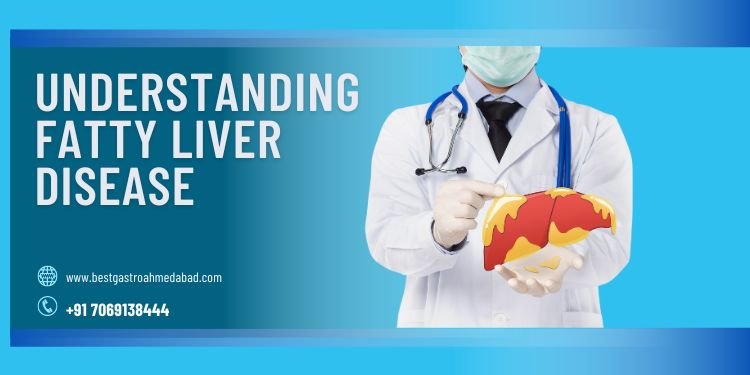Understanding Fatty Liver Disease: Signs, Diagnosis, Treatments, and Life Expectancy

What are the common signs of fatty liver disease?
Fatty liver disease, also known as hepatic steatosis, often presents with subtle symptoms, making it challenging to detect in its early stages. However, some common signs may indicate its presence:
Fatigue: Persistent tiredness or weakness without any apparent cause could be a sign of liver dysfunction, including fatty liver disease.
Abdominal Discomfort: Pain or discomfort in the upper right abdomen may occur as the liver enlarges due to fat accumulation.
Unexplained Weight Loss: While weight gain is often associated with fatty liver disease, some individuals may experience unexplained weight loss, especially in advanced stages.
Jaundice: In some cases, yellowing of the skin and eyes (jaundice) may occur due to impaired liver function, although this is less common in fatty liver disease compared to other liver conditions.
It’s important to note that fatty liver disease can progress without obvious symptoms, highlighting the significance of regular medical check-ups and screening tests.
How is fatty liver disease diagnosed?
Diagnosing fatty liver disease typically involves a combination of medical history assessment, physical examination, and diagnostic tests:
Medical History: Your healthcare provider will inquire about your symptoms, medical history, alcohol consumption, and any existing medical conditions.
Physical Examination: A physical exam may reveal signs such as an enlarged liver or jaundice, although these findings are not always present.
Blood Tests: Blood tests, including liver function tests and markers of liver inflammation, can provide valuable insights into liver health.
Imaging Studies: Imaging tests such as ultrasound, CT scans, or MRI scans can visualize the liver and assess the degree of fat accumulation.
Liver Biopsy: In some cases, a liver biopsy may be recommended to confirm the diagnosis and assess the severity of liver damage.
Early detection and accurate diagnosis are crucial for implementing appropriate treatment and preventing disease progression.
What treatments are available for fatty liver disease?
Treatment strategies for fatty liver disease focus on addressing underlying causes, managing symptoms, and preventing complications:
Lifestyle Modifications: Adopting a healthy lifestyle is often the first line of defense. This includes maintaining a balanced diet, achieving and maintaining a healthy weight, exercising regularly, limiting alcohol consumption, and avoiding unnecessary medications.
Medications: In some cases, medications may be prescribed to manage underlying conditions such as diabetes, high cholesterol, or obesity, which can contribute to fatty liver disease.
Nutritional Supplements: Certain nutritional supplements, such as vitamin E and omega-3 fatty acids, may have beneficial effects on liver health and inflammation.
Medical Monitoring: Regular monitoring of liver function and disease progression through blood tests and imaging studies is essential to assess treatment effectiveness and adjust management strategies as needed.
Advanced Therapies: In severe cases of fatty liver disease, advanced therapies such as liver transplantation may be considered, especially if complications such as liver failure develop.
Treatment plans are tailored to individual needs based on factors such as the underlying cause, disease severity, and presence of complications.
How does fatty liver disease affect life expectancy?
The impact of fatty liver disease on life expectancy varies depending on several factors, including the underlying cause, disease severity, presence of complications, and effectiveness of treatment. In general:
Early Stages: Fatty liver disease often progresses slowly and may not significantly affect life expectancy, especially if detected and managed early through lifestyle modifications and medical interventions.
Advanced Stages: If left untreated, fatty liver disease can progress to more severe conditions such as nonalcoholic steatohepatitis (NASH), liver fibrosis, cirrhosis, and liver failure, which can substantially reduce life expectancy.
Complications: Complications of fatty liver disease, such as liver cancer or end-stage liver disease, can further impact life expectancy and quality of life.
Overall, early diagnosis, proactive management, and adherence to treatment recommendations are essential for optimizing outcomes and improving life expectancy for individuals with fatty liver disease.
In conclusion, while fatty liver disease may initially present with subtle symptoms, prompt diagnosis and appropriate management are critical for preventing disease progression and improving long-term prognosis. By understanding the signs, diagnostic methods, available treatments, and potential impact on life expectancy, individuals can take proactive steps to protect their liver health and overall well-being. If you suspect you may have fatty liver disease or have concerns about your liver health, consult with a healthcare professional for personalized evaluation and guidance.
Contact Alfa Gastro and Liver Care and consult with Dr. Vatsal Mehta for expert guidance on understanding fatty liver disease.
